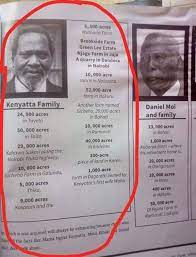“Not the politicians that will unite Luhyia land, the internet will” ... [Author]
As the tilling season of 1822 approached, there arose into popularity, a young man, son of Mukite, great grandson of Wafulumbe from Batilu tribe of Babukusu. He walked far and wide beating a massive Buganda dream. The drum beats awakened the Bukusu land to unite to a purpose and live as one people, undivided. He was 1790-born orphan whose parents were felled by Bamia Bapala during the second dispersion war at Embayi and Mwalie. He had spent his childhood as a refugee in Ebukabalasi. The tribesman would launch a solo campaign of bringing the lost sons and daughters that had dispersed amidst a successive wave of tribal wars that had created massive rift among the People of the Thigh of the Elephant.
Remembered as a courageous patriotic and wise community leader, Mukite wa Nameme upon consulting an old Bukusu seer would rally people to as far as Mundoli, Samia, Marachi and Bunyala reminding them to return to Bukusu land and pronounce end of tribal wars. He was a daring young man who spearheaded the mid-19th century exodus of lost Bukusu tribesmen from Ebemaraki, Ebusamia, Ebukabalasi, and Ebuserema to as far as Ebunyolo. Mukite’s people organization skills could only be rivaled by Maina wa Nalukale, his well-respected predecessor!
The modern Luyhia land cries for such a leader. To drive sense into the Luyhia nation; to bring sanity among Luyhia sub nations. To unite, guide and intervene the very rifts that define the failure points for progression and united living. The modern Luyhia politics is that of division, self-fulfillment, individualism and bile-green jealousy.
I would call on Mudavadi son of Hannah from Vakevembe clan of the Bamaragoli or Mukhisa wa Kituyi, son of Joinah from Batukwiika Bakitang’a. I would call on Nazi Kombo from the great ancestry of Mulunda, or Makelo son of Lusaka or Masika Wetangula, an Omutura tribesman. I would beseech Wangamati from Ebubuyonga or Eugene wa Wamalwa son of Nekesa from Ebuengele. I would seek Oojamong from Ebumia, Oparanya son of Ambetsa, or Akaranga from Eburagoli and many more...
But I won’t. I will not. Because they have failed. They sucked on nipples of Luyhia women, brought up in the ways of the community. They schooled in pink man’s classrooms and excelled to the highest levels. Even some flew in metal underbellies traversing massive oceans in search of education and enlightenment. And they came back. The political elites, we call them, first ambassadors of disunity, their tongues dividing deep the hearts and homesteads, for which their forerunners were taught against.
The Luyhia community will unite, some day. Soon, perhaps. But not with them, no!
Ordinary folks would rise up, those who believe in true unity. From by Eburakoli, Ebubukusu, Ebunyala, Ebumaraki and Ebusamia; from Ebuchocho, Ebuidakho, Ebuwanga, and Ebunyore; from Ebutiriki, Ebuisukha, Ebukisa: from Ebukhayo, Ebusonga, Ebusoso, Ebukabalasi and Ebumarama. All sons and daughters of Muluhyia. All the 17 units bundled into one. One warmth, one voice and one love.
The change will come, not by words but action. Not by the political elites but by the magic of the pink man.
 Decades ago prophesized by our war prophet Mutonyi wa Nabukelembe, a pink man’s magic would include his ability to make one speak at ebukwe (sunrise) and the other hear in mumbo (sunset).
Decades ago prophesized by our war prophet Mutonyi wa Nabukelembe, a pink man’s magic would include his ability to make one speak at ebukwe (sunrise) and the other hear in mumbo (sunset).
The pink man’s magic is here with us. We carry alongside chingayu-like objects. We place them on our ears and hear people’s voices very clearly without them shouting. These chingayu are connected from person to person.
And now we can talk, laugh, cry and encourage one another. With outstanding precision and timing we see and know of events as they unfold.
The pink man’s chingayu have changed the way we think, act, learn and most importantly how we reason. Take word, the coming generations will be smarter than us. They will be more united, talking to one another, loving without boundaries. They are the emissaries of peace, using the pink man’s magic to unite the whole household of Muluyia – the ever-divided children of a common father.
A story is good, until another one is told...











Comments